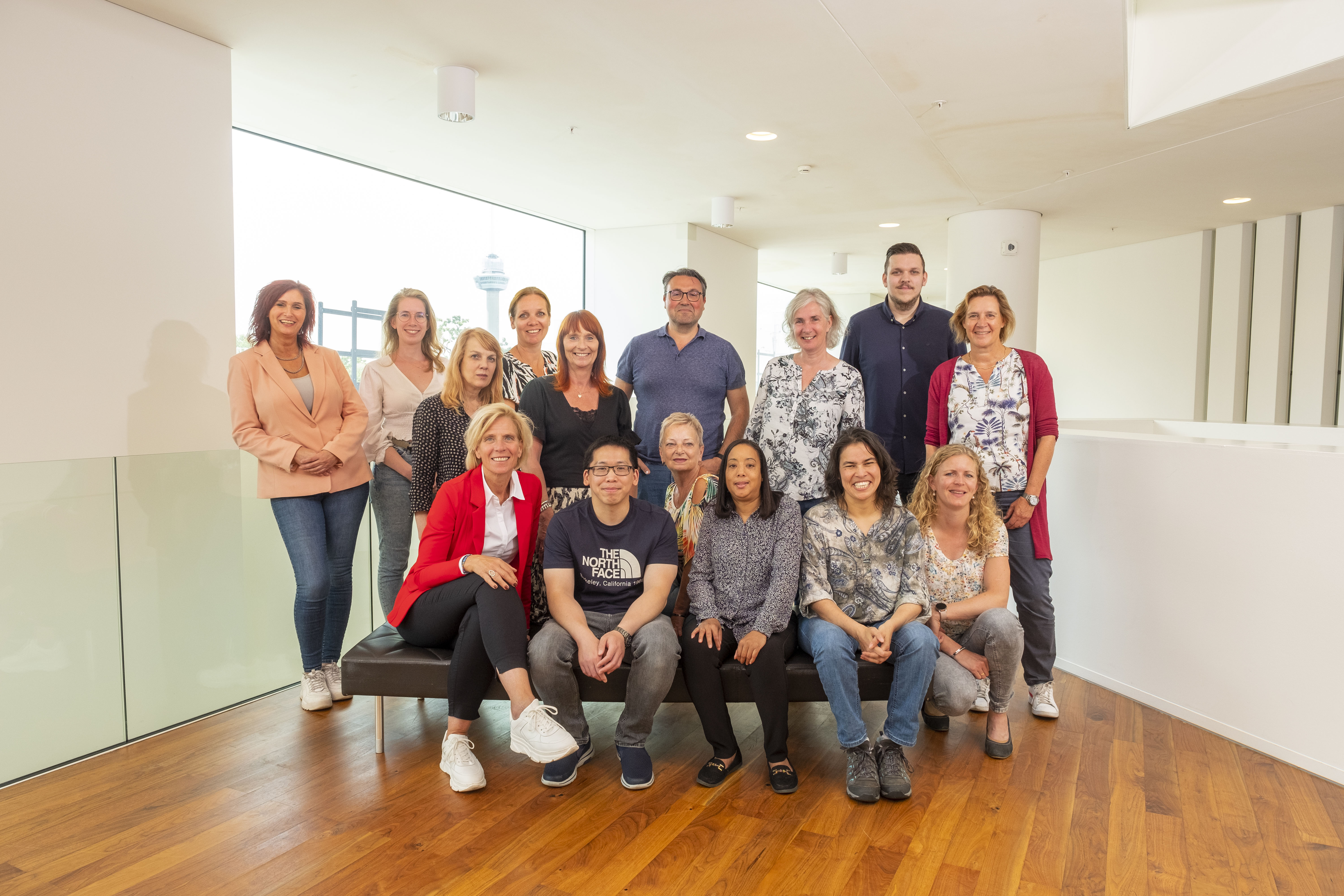Support and administration
Secretariat
The secretariat of the department of public health assists its employees in a variety of ways: meeting organization and planning, processing of invoices, keeping track of the many hr-related administrative processes, and just being a general source of all kinds of practical information. Furthermore, the secretariat is involved in the organization of events such as the 50th anniversary celebrations of the department as well as the Health Sciences Theme day.
IT
The IT section supports the department on many digital data-questions not covered by the Central IT-department. This includes the following:
- managing drives, files, folders and the rights each department member has on them,
- maintaining Project-related folders and files
- archiving data
- supporting the use of non-standard hardware and software
- keeping an eye on questions of data and network security.
The IT section hopes to be “trait-d’union” between Department and Central IT.
Research support office
The research support office underpins all stages of research projects in a practical way. From acquisition, implementation and execution to the final archiving after completion of the project, the office has a wide experience and gives advice and practical hands-on support. The office is specialised in the administrative procedures of EU projects and supports a.o. the Horizon 2020 and 3HP projects that are co-ordinated by the department in many ways, whether it is the organisation of international workshops or adherence to ethical requirements. On behalf of the department’s quality commission, the research support office raises high awareness on adequately handling personal data among the researchers.
Education and training support
Because of the newly developed education and training activities in the medical education programme, the administrative support staff of the Education and Training section of our department had to manage a considerable increase of work and also some challenges.
Extensive timetables were used to schedule all teaching activities in the learning trajectory ‘Collaboration for Optimal Care and Prevention’ (COCP) and the teaching activities in the renewed master education programme ‘Social Medicine’. In close collaboration with the planners, we did our best to arrange optimal schedules for the involved students and teachers. A big part of the education is provided by external teachers. Therefore we get in touch with a wide variety of people working for other organisations than the Erasmus MC. The increased amount of interprofessional team training sessions with staff of several hospital wards took a lot of time to organize. For example, the recruitment of sufficient medical practitioners for every session is a challenge, because they have to combine this with their normal work in the hospital. In addition, we welcomed a new way in the online learning environment (CANVAS) to collect the 3 assignments that students have to write in order to participate in the COCP learning trajectory.
The coalition with the municipality of Rotterdam to develop a novel internship social medicine also needed extensive administrative support. It was challenging to organize a large amount of novel internships parallel to our support of traditional internships in the still running ‘old’ master programme.
Overall, the education support staff embraced many challenges, but that’s also what makes our work varied. Moreover, the collaboration and contact with the internship supervisors, teachers, students, planners and staff members of the Education Service Center was very enjoyable!
